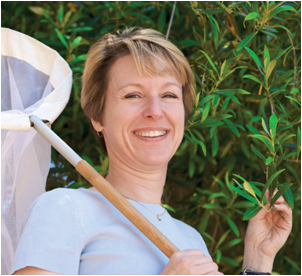CSUEB professor finds honeydew may reduce the efficacy of fruit fly bait

Susan Opp
- May 6, 2011 5:06am
Entomologia Experimentalis et Applicata published new research by Cal State East Bay Professor of Biological Sciences and AVP Susan Opp and her colleagues that studied food preferences of the olive fruit fly. Read journal article.
In their article, "Honeydew and insecticide bait as competing food resources for a fruit fly and common natural enemies in the olive agro-ecosystem,” Opp and colleagues investigated the effects of black scale honeydew and GF-120 NF NaturalyteTM Fruit Fly Bait from Dow AgroSciences as food resources, on adult hunting behavior and survival of the olive fruit fly and two parasitoids in the olive agro-ecosystem. They found that male flies and the parasitoids preferred honeydew while female flies weren't as picky and showed no preference. "The presence of honeydew significantly reduced fruit fly mortality when both honeydew and GF-120 were provided, compared with GF-120 given alone. A single meal of honeydew increased longevity in all insect species tested. The mean longevities of honeydew-fed insects were not significantly different from those feeding on clover honey. Our results suggest that the presence of honeydew would benefit the three insect species and may reduce the efficacy of GF-120 for fruit fly control because of preference of honeydew rather than fruit fly bait as a food resource."
Opp was named "George and Miriam Phillips Outstanding Professor" in 2008-09 and has been featured in Cal State East Bay magazine
BH